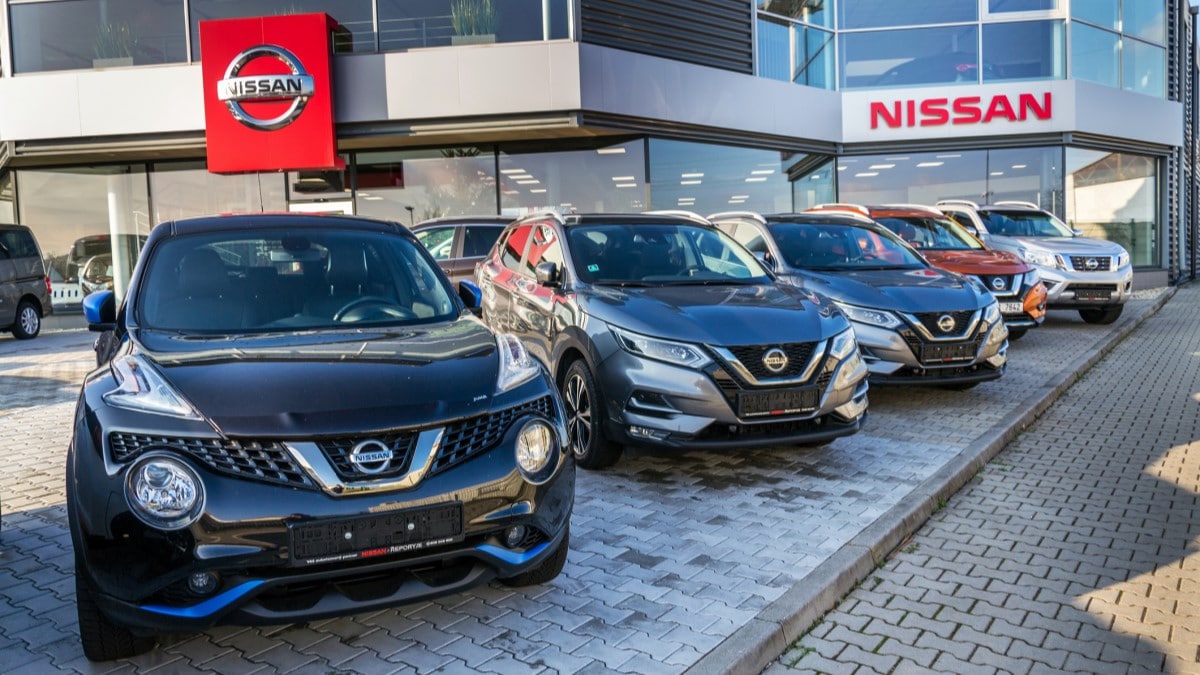“We have 12 or 14 months to survive.” The Financial Times this week published this alarming quote from a “senior official close to Nissan,” stirring online speculation that one of Japan’s largest automakers could be close to collapse.
Nissan’s situation is troubling. However, worried owners should know that the brand is unlikely to disappear soon. Founded in 1933, Nissan has weathered hard times before, and several possible rescue plans could see it emerge restructured even in a worst-case scenario.
Nissan owners need not worry much – your local dealership will likely still be around to support your car after the current crisis resolves.
Flagging Sales, Production Cuts
Nissan’s operating profits, MSN reports, shrunk “by 90% in the first half of the fiscal year.”
According to Reuters, CEO Makoto Uchida blames “weak sales and profitability in North America and China, according to three people with knowledge of the matter.”
The company has responded with plans for drastic cuts. Automotive News reports that Nissan could build nearly 100,000 fewer cars in the U.S. in fiscal 2024 and could “reduce some assembly plant shifts from five days a week to four.”
The automaker hopes to eliminate 9,000 jobs globally as part of an effort to stem the bleeding.
Missed the Hybrid Boom, Luxury Marque Struggling
A lack of hybrid options compounds Nissan’s troubles in the U.S. Hybrid sales have soared in recent years as many shoppers look to save money at the gas pump without tying their transportation freedom to an electric vehicle charging network in its earliest growth stages.
However, Nissan has no hybrids on its sales lots.
President-elect Donald Trump’s threat to place a 25% tariff on all products coming from Mexico could hurt Nissan worse than some rivals. The company builds several models in Mexico, and brings engines from Mexican factories to the U.S. for use in others.
Its Infiniti luxury brand is also struggling. Automotive News notes, “Infiniti’s share of the U.S. luxury segment has plunged by more than half since 2019, the steepest decline among premium brands.”
Might Save Itself
Though Nissan’s situation is dire, the company might save itself. The company has begun drastic changes aimed at cutting costs and consolidating efforts.
The moves include an executive shuffle – the company’s chief financial officer resigned this week. They also include lineup changes. Nissan has announced plans to remove most sedans from its lineup and focus its efforts on more profitable SUVs.
It will finally introduce a hybrid next year, licensing the plug-in hybrid (PHEV) system from the Mitsubishi Outlander PHEV for use in its best-selling product, the Rogue compact SUV.
Automotive News reports that the company will also let dealers close some Infiniti dealerships and sell Infiniti vehicles from Nissan stores instead. “Combining back-office and service operations across both brands lowers overhead and increases sales per rooftop in a bid to lift profitability,” AN notes.
Several Rescue Options
If those efforts fail, the company will still likely not collapse entirely. Instead, it may find rescue through an outside buyer.
“Nissan is searching for an anchor investor to help it survive a make-or-break year,” the Financial Times explains.
Two activist investor groups known for taking over troubled companies, Oasis Management and Effisimo Capital Management, have already bought small stakes in Nissan. Private capital investors would likely cut Nissan operations back significantly, seeking profitability, but not abandon a company with operations on multiple continents and a nearly century-old brand.
Nissan, however, could seek out rescue from a rival. “The company also hasn’t ruled out the possibility of longtime rival Honda taking a majority stake in the company,” MSN reports.
Such big-brother/little-brother relationships aren’t uncommon among Japanese automakers. Giant Toyota holds partial stakes in both Mazda and Subaru today. Both companies compete with Toyota. But Subaru’s unique appeal among outdoor enthusiasts and Mazda’s performance branding give them their own market niches. Outside ownership could be just what Nissan needs to create a more distinct personality, setting it apart from a generalist parent like Honda.








